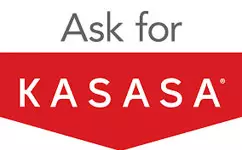
3 Ways DEXSTA Can Help You Financially Prepare for a Recession
- By DEXSTA
- 10.07.2020
- Latest News
The COVID-19 pandemic affected the economy in many ways, from mass layoffs to shuttered businesses. Understandably, there’s speculation and fear of an upcoming recession. However, despite a slow start to the year, the U.S. economy is projected to pick up again in Q4. But even if things return to normal faster than expected, it’s smart to prepare for unexpected financial opportunities and emergencies.
What defines a recession?
A recession happens when the economy experiences a rise in unemployment and a decline in trade and industrial activities over a period of time. Typically, 1.5 years. As a result, average household income and spending decrease. Yet despite its negative connotation, a recession is part of the natural economic cycle. Based on the standard business cycle, a recession can occur every four to five years. By practicing healthy financial habits, you can prepare in advance.
How to prepare for a recession
Managing your budget, growing your savings, and making regular contributions to your investment portfolios are vital to staying one step ahead of unexpected economic changes. Prepare financially for a recession with these easy-to-implement tips.
Review and adjust your monthly budget
Make a habit of evaluating your budget each month. As part of the process, review your credit card statements and recurring expenses. Consider which costs you can cut, versus which ones are mandatory. Are you paying for multiple streaming services or subscriptions? Cancel some of them. Spending too much at the grocery store? Switch to generic brands instead of name brands. Does your energy bill seem high? Look for ways to reduce your usage. Not surprisingly, these small amounts add up over time.
Increase contributions to your emergency fund
After reviewing your budget and cutting unnecessary costs, reallocate savings to grow your emergency fund. As a baseline, aim for the 50/30/20 rule. To do this: spend 50% of your net income on rent, utilities, insurance, and minimum debt payments; 30% on discretionary spending such as dining out, fitness memberships, and clothes; and put 20% in savings. However, if you want to be extra prepared for a recession, reduce your discretionary spending to 20% and allocate 30% to savings. Ultimately, you’ll want to have enough money to cover three months of essential expenses in your emergency fund.
Continue making contributions
If you already have an IRA or ESA set up, keep making your regular budgeted contributions. It’s easy to stop saving money for the future during a recession, but considering recessions typically only last for several months to several years, saving for the future will benefit you in the long run.
DEXSTA is here to help
At DEXSTA, we offer various savings account options to help you start and grow your emergency fund. Plus, with automatic transfers, you can set up monthly contributions based on your savings budget. Contact us to discover which option is right for you.




